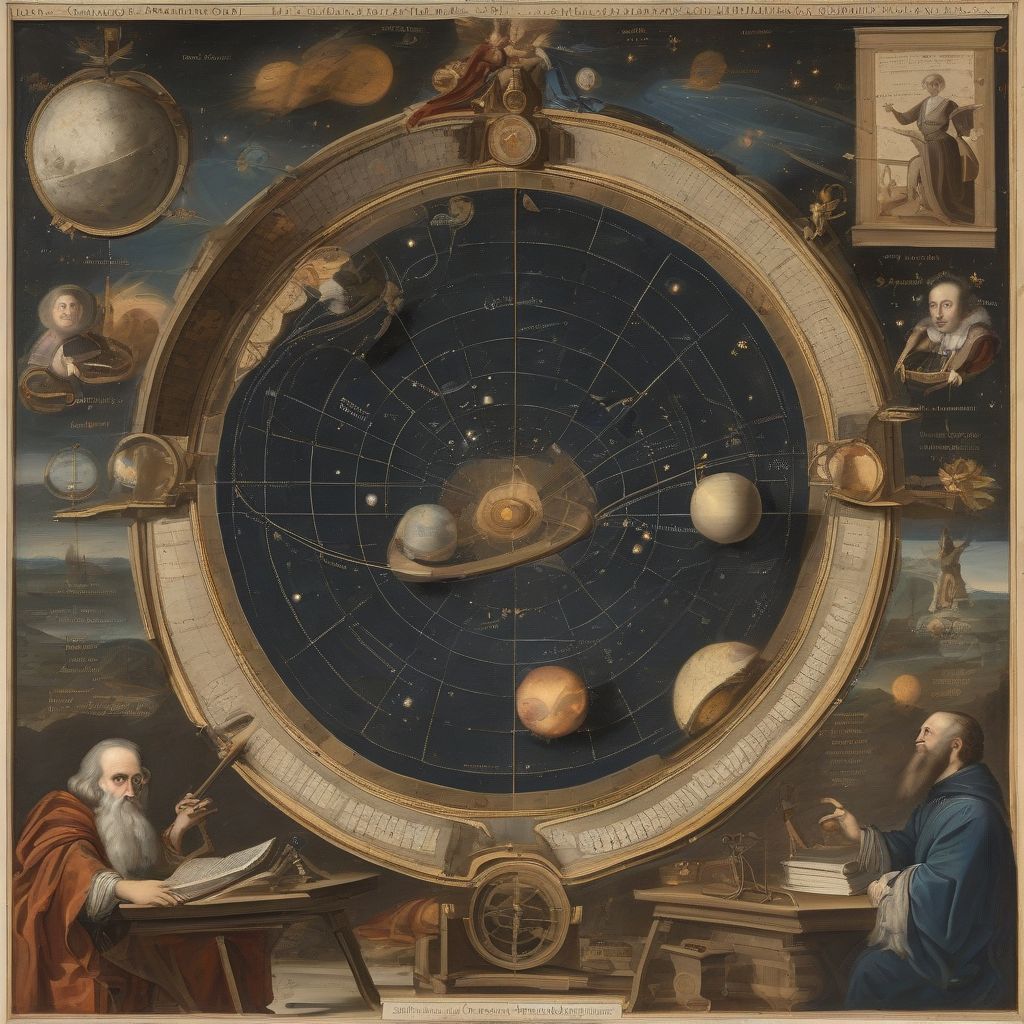Have you ever stopped to marvel at the intricate web of knowledge that surrounds us? From the simplest tools to the most complex theories, human progress has been driven by a relentless pursuit of understanding. But what are some of the most groundbreaking ideas that have propelled us forward, shaping our world and expanding our capabilities? Let’s delve into the fascinating journey of human ingenuity and explore the ideas that have significantly advanced human knowledge and capability.
The Dawn of Reason: Language and Abstract Thought
One of the earliest and most profound leaps in human development was the emergence of language and abstract thought. Imagine a world without words, without the ability to share complex ideas or pass down accumulated wisdom through generations. Language not only facilitated communication but also fostered the development of abstract thinking, allowing us to conceptualize the world around us in new and profound ways. This ability to think beyond the immediate present opened up possibilities for planning, innovation, and the creation of complex societies.
The Power of Storytelling and Oral Traditions
Before written language, stories and oral traditions served as the primary means of transmitting knowledge and cultural values. These narratives, passed down through generations, shaped our understanding of the world, instilled moral codes, and provided a sense of shared identity. As Yuval Noah Harari eloquently argues in “Sapiens: A Brief History of Humankind,” the ability to create and believe in shared myths allowed humans to cooperate on a massive scale, paving the way for the development of complex civilizations.
The Scientific Revolution: A New Way of Seeing the World
The Scientific Revolution, beginning in the 16th century, marked a paradigm shift in human thought. The emphasis on observation, experimentation, and the formulation of testable hypotheses revolutionized our understanding of the natural world. Figures like Copernicus, Galileo, and Newton challenged long-held beliefs and established a new framework for scientific inquiry.
Unveiling the Secrets of the Universe: From Geocentrism to Heliocentrism
The shift from a geocentric (Earth-centered) to a heliocentric (Sun-centered) model of the universe was a monumental achievement. This revolutionary idea, championed by Copernicus and later confirmed by Galileo’s observations, not only challenged religious dogma but also laid the foundation for modern astronomy and our understanding of the cosmos.
Newton’s Laws of Motion: A Universe Governed by Laws
Isaac Newton’s laws of motion and universal gravitation provided a unified framework for understanding the physical world. These laws, published in his groundbreaking work “Principia Mathematica,” explained the movement of celestial bodies and laid the groundwork for classical mechanics, revolutionizing fields like physics and engineering.
 Scientific Revolution
Scientific Revolution
The Digital Age: Information at Our Fingertips
The advent of computers and the internet has ushered in an era of unprecedented access to information and interconnectedness. The digital revolution has transformed the way we communicate, learn, and interact with the world. From the invention of the printing press to the development of the World Wide Web, the democratization of knowledge has been a driving force in human progress.
The Power of the Internet: Connecting the World
The internet has become an indispensable tool for communication, research, and collaboration. It has broken down geographical barriers, facilitated the sharing of information across borders, and empowered individuals with access to a vast repository of knowledge.
Artificial Intelligence: The Next Frontier
Artificial intelligence (AI) has emerged as one of the most transformative technologies of our time. From self-driving cars to personalized medicine, AI is rapidly changing the way we live and work. While the full potential of AI is still unfolding, its impact on human knowledge and capability is undeniable.
The Importance of Critical Thinking and Innovation
Throughout history, progress has been driven by individuals who dared to challenge conventional wisdom and explore new frontiers of knowledge. Critical thinking, the ability to analyze information objectively and evaluate arguments logically, is essential for separating fact from fiction and making informed decisions.
Fostering Creativity and Innovation
Innovation, the process of translating new ideas into practical applications, is the engine of progress. From the invention of the wheel to the development of vaccines, human ingenuity has transformed our world and improved our lives in countless ways.
- plants, drugs, food
- McKenna, Terence (Author)
- Hardcover Book
- Kean, Sam (Author)
- Hardcover Book
- Winslow, Valerie L. (Author)
- Hardcover Book
- Tanya Hall (Author)
- Hardcover Book
- Johnson, Steven (Author)
- Great product!
- brand: Gallup Press
- Watts, Mandisa (Author)
- English (Publication Language)
- Lainé, Sylvie (Author)
- French (Publication Language)
- Used Book in Good Condition
- Hardcover Book
Conclusion
The journey of human knowledge and capability is a testament to our boundless curiosity and our relentless pursuit of understanding. From the earliest forms of language and abstract thought to the revolutionary discoveries of the Scientific Revolution and the transformative power of the digital age, human ingenuity has shaped our world in profound ways. As we continue to explore new frontiers of knowledge and push the boundaries of what is possible, it is essential that we embrace critical thinking, foster creativity, and cultivate a spirit of innovation to ensure that the future of human progress is as bright as its past. Share your thoughts on the most impactful ideas in human history – we’d love to hear your perspective! What innovations do you believe hold the key to shaping our future?










